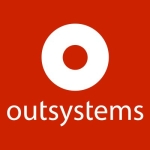What is most valuable?
One of the benefits of the platform itself is that it's not covering IT service management only. It, for example, has price service management functionality.
There are lots of modules around IT service management such as IT business management and human resource management (HRC). Bigger clients, enterprises, are often looking for end-to-end business flow automation. Part of those processes, in other cases, are standalone solutions. The ability to implement end-to-end flows, including business ones, is the most important aspect of the solution.
What needs improvement?
I sometimes try to compare ServiceNow with Micro Focus. When I worked with Micro Focus or HPE, I liked how they communicate with partners, how they provide materials. ServiceNow really does lots of things in this area, however, there is definitely some space for improvement there. For instance, some workshop materials, et cetera, are lacking. They need to be providing vendors and implementation partners with materials and guidance on implementation.
The solution is mostly on the cloud. On-premises implementations are more difficult.
For how long have I used the solution?
I've been using ServiceNow for the last five years. I remember my first implementation project was in 2017. Probably before that, I started using ServiceNow and did the training, et cetera.
What do I think about the stability of the solution?
The stability is pretty good. On average, I don't see many clients complaining about the performance side of stability or availability on the platform.
What do I think about the scalability of the solution?
We did some cases to improve server functionality with scaling. We created clusters. In terms of the scalability of ServiceNow itself, several instances of ServiceNow with synchronization, et cetera, as well as performance, I don't recall scaling so much. In most cases, it's not really required as one instance of ServiceNow is good enough for most clients. They also handle all this backup, monitoring, and et cetera, internally.
How are customer service and technical support?
I rarely deal with technical support, as, most often at least, I focus our innovation on implementation projects. Support is more active when it's implemented already and rolled out to production. Other personnel from my department handle that, for sure. From my understanding, in terms of the quality of the support, it's quite typical. Sometimes it could be better and faster. However, if we can imagine the flow of those tickets for the ServiceNow support side, I would imagine it's quite big. Therefore, I'd say that it's acceptable and understandable.
Which solution did I use previously and why did I switch?
I also work with Atlassian's Jira Service Desk. I used to work with Service Manager five years ago.
For ServiceNow, I really like it's a single platform. Everything within the platform is integrated already. There are quite rich integration capabilities with other systems at the client-side. For Micro Focus, you can install it in the cloud or on-premises. ServiceNow doesn't really allow you to install anything on-premises.
On the Micro Focus side, some of their products were really great, such as Universal CMDB or UCMDB. At some point, it's still better than the current ServiceNow CMDB. Some single individual products from Micro Focus were really great for me. However, in some cases, when you come into a client and try to solve a complex task, you need to map the requirements to particular products. For Micro Focus, sometimes it was problematic as you required many products solving more or less the same purposes. At ServiceNow, each module is quite unique and serving its unique purpose. It's more like LEGOs.
With Micro Focus, I remember in some cases, their solutions were quite resource-consuming. It's pretty predictable since HPE at the time was both a software and hardware vendor. It was good for them to sell software plus hardware. Sometimes it was how to understand why particular software could consume so many resources. That's not a problem with ServiceNow at all as it's on the cloud mostly.
How was the initial setup?
The initial setup is pretty clear. If we try to compare the implementation of some traditional modules, like incident management, request fulfillment, it's an industry standard. It's very good. ServiceNow, from a functionality and partner support perspective, has lots of materials. However, when it comes to some newer modules, some ITBM applications, et cetera, sometimes when they just release the first version of the module, and it might be a bit different from a functionality perspective. There's a lack of documentation and support. That's quite typical. I feel like Hewlett-Packard pays a bit more attention to that.
What about the implementation team?
We're implementors. We implement the solution for our clients.
What was our ROI?
ServiceNow is still mostly used as an ITSM platform. And IT service management mostly feeds some kind of internal purposes. It's not a business-related platform. It's supposed to save money, not to help to earn money.
Some clients come in to get some help with the reimplementation of a platform. Others are looking for certain improvements to the existing platform. In some cases, it's a greenfield implementation. For greenfield implementations, especially when it comes to big enterprises, the question behind the scenes is we don't really understand how much we spend on IT. There are likely many unrelated budgets, which are not even visible. The first question is how much you really spend. And if they get an answer to this question, it's already a good achievement.
Over time, we baseline the spending and we implement new functionality and new processes, new modules. In some cases, it's quite expensive compared to the business itself. By that, I mean, the processes we implement. We may have 20 people doing some job and if you look at their salaries for a couple of years, it's a lot. We come in and implement and automate the process for them, and in those cases, it might be five years of salaried budget saved. However, that's years. You won't see the savings immediately. It will be something witnessed over time.
What other advice do I have?
We're a ServiceNow partner. We help to implement ServiceNow for our clients.
We're working on likely the latest version of the solution. ServiceNow provides upgrades two times a year. Previous versions get obsolete so that you can't actually use them.
I often see that people tend to simplify things and they expect any system, no matter if it's ServiceNow or any other system or platform from the area, that the implementation would solve the entire ATSM matter. However, in fact, with ATSM, it's about products, people, processes, and partners. All the efforts should be covered. No solution is a silver bullet.
I'd rate the solution at a nine out of ten. it's a very good solution, however, there's always room for improvement.
Disclosure: My company does not have a business relationship with this vendor other than being a customer.





















